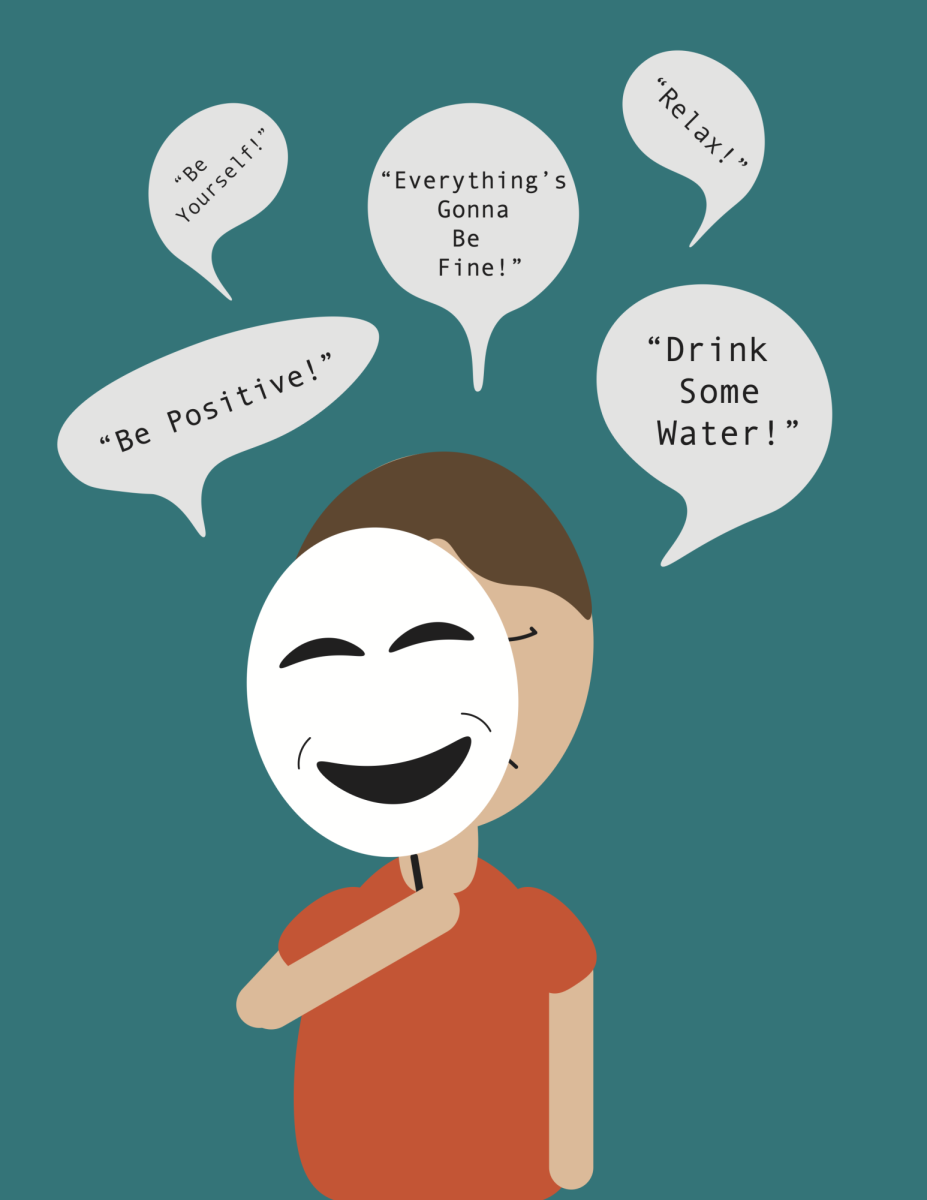No one really understands why you have to check seven different times if the bathroom light is turned off. There’s no handbook on what to do when you have a petrifying panic attack in the cereal aisle of Hy-Vee. You never asked to be so painfully depressed that you can’t make it out of bed to go to your best friend’s birthday party. You never wished for your mental illness, but you have it and it’s important that you address it so that it doesn’t consume you.
While not everyone’s mental illnesses are so paralyzing, they all deserve to be talked about. All are important and unique and should be treated as such. Mental illness is a sensitive topic and talking about it can leave many feeling uncomfortable, but we have to do it anyway. We have the ability to make another person’s life better, so let’s do it.
It can be very isolating to feel that no one understands what you’re going through. It’s not hard for those with mental illness to feel that way, given the way we think about mental health in our society.
Often, mentally ill people are depicted as “crazy.” In fact, the National Institute of Mental Health indicates that less than 1% of the American population has a psychotic disorder, which is usually what people mean by “crazy,” and even for them, the term is insulting.
Mentally ill people are often portrayed in film as dangerous when, in reality, mentally ill people are far more likely to be victims of violence than perpetrators. Mentally ill people are regarded as oddballs who stand out as strange, but really, nearly 18% of adults in the U.S. meet criteria for mental illness at any point, and most are diagnosed with mood disorders and anxiety disorders that could cause substantial suffering, but that suffering would be quite invisible to the rest of us.
Among young adults, mental illness has a higher prevalence. 30% of college students in the US report feeling depressed to the point that it affected their school performance. However, 50% of Americans with major depression do not seek help for their mental illness. And it is no surprise; when those with mental illness are not spoken about or portrayed as strange or dangerous, they are simply not spoken about at all.
Perhaps if mental illness were described as a common, sometimes chronic, but sometimes transient phenomenon, those suffering from it would feel validated and get the help they deserve. Talking about mental illness is not only crucial for those suffering from it, but for everyone. We all need to be self-aware about our mental health and understand the nature of our feelings.
Not everyone wants to share what their addiction, their eating disorder, or their PTSD has been like for them, and that’s fine. Your mental illness is incredibly personal and sharing it with people can make you feel vulnerable.
Not everyone is understanding and sympathetic. People do judge.
But you don’t have to talk specifically about your illness to start the conversation. Talking about the importance of general mental health will do important things. At the very least, it might make someone feel understood. Even if you don’t have a personal story of mental illness, you’re a big part of the conversation. Do some research, be a voice for those who may feel they don’t have one. Ask questions!
We have to let people know that they are not alone in their battles. We have to educate ourselves more about mental illnesses because they are so prevalent among our peers. And we have got to put an end to the erroneous idea that having a mental illness and being “crazy” are synonymous. They are not.
It merely means that some mental health symptoms you are experiencing are interfering with your functioning or causing you subjective distress. With treatment, there are millions of highly functioning people who have a mental illness.
Your professor. The guy that lives below you. Your aunt. Your friend. You. Me.
The point is that we have to stop fearing or ignoring people that suffer from these illnesses. If we do not, no one will talk about it. If no one talks about it, nobody gets better. So, let’s start this conversation.
Please don’t face your mental illness alone. Talk to your family, tell your friends, email your professor, call Augustana’s counseling services (309 794 7357) and make an appointment, it’s free! You’re not alone in your struggles and you should never be made to feel like you are.
Abbey Mondi • April 24, 2024

Jack Brandt • April 24, 2024
April 24, 2024
Maranda Bargren • April 24, 2024
It is time to bring the topic of mental illness into the open
March 25, 2017
Leave a Comment
More to Discover
















































































































